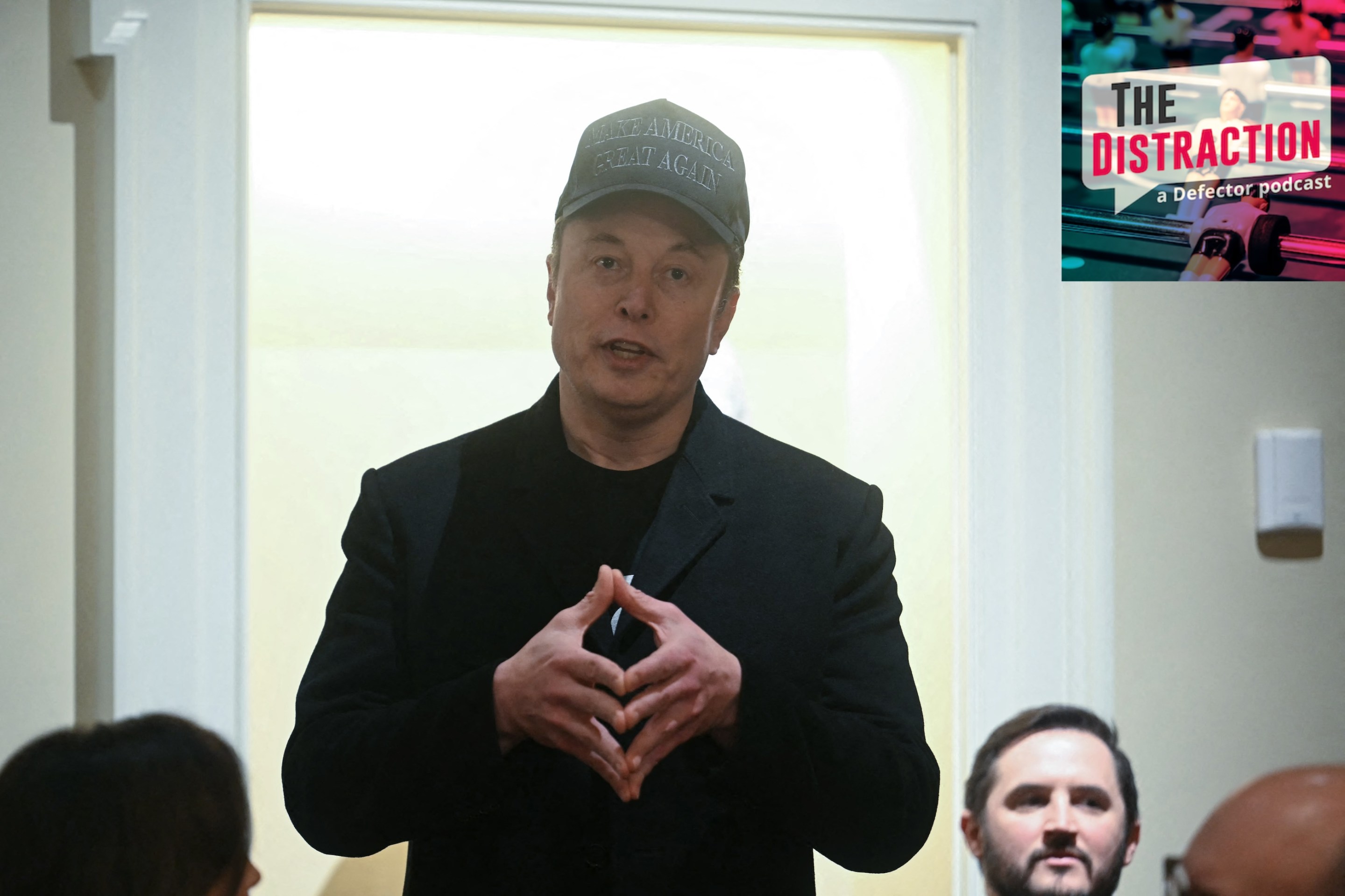It is a longstanding workplace value at Defector not to take journalism too seriously. The work, however serious it might be from one moment to the next, is worth taking seriously and trying to do well. The industry and practitioners and accumulated lore and pomposity, on the other hand, must never get even a moment of respect. This is a little perverse, admittedly, and creates some strange internal conundrums—I find myself thinking some version of "my job, which I take seriously and try very hard to be good at, is ridiculous and often deeply stupid"—but, on balance, it is probably better than acting in the way that, say, the lead people on the New York Times politics desk act.
And there's a loophole: If you're not allowed to be too serious or even too proud of yourself and your own work, you are allowed to be impressed with others. Drew and I seized on that loophole this week to invite onto the podcast Tim Marchman, whose team at Wired has done some of the best and most important reporting about Elon Musk's ongoing vandalism campaign within the federal government. This work, at least, we are comfortable saluting.
Marchman is also a longtime friend of the podcast. He was the co-host of the Deadcast before I took over the role, he hired me at Deadspin when he was editor-in-chief, and he's a delightful person to talk to. We had a lovely time talking to him about some of the worst and dumbest shit that has ever happened in American government. We talked about some goofy stuff, too—James Glickenhaus's iconic 1988 New York shitfest Shakedown, the unholy and uncanny abstraction of this year's Chicago White Sox, the usual—but much of the podcast is a decently substantive rundown of what is going on with DOGE.
Marchman's team has overseen what is very clearly industry-leading coverage of what Musk and his minions are doing, and we talked about what DOGE is and what it does, as well as the series of elite tics and shibboleths and idiocies that make it do those things. It is shocking stuff, even if you already know the broad strokes—teenage programmers cosplaying as the Bobs from Office Space, random Silicon Valley types parachuting in and advocating for getting rid of the CMS that powers the Veterans Administration's website, the attempt to replace old and high-functioning systems with newer, worse, more vulnerable ones seemingly on principle. The metaphors are barely even metaphors, and you'll find some here—an executive running the government not like a businessman, but like a slumlord; a bunch of libertarian sociopaths pouring grapefruit juice into a USB-C port to see what happens; generations of contempt for government coming to hideous fruition as one last lazy insult. But mostly we talked about the things themselves.
After the break, we approached and retreated from the question of what exactly is in it for Elon Musk, here. It's a difficult question, as Tim noted, because it's unclear that Musk himself actually understands what he's trying to do. Is DOGE trying to make it easier for agencies to communicate in surveillance-state ways? Make more room for private corporations to get involved and get rich? Or is it just to make the state work more like one of his businesses, despite it being an entirely different thing. We talked a bit about the deranging faith in AI that pervades this whole scene and the ways in which it has warped this cohort's capacity to plan for the future or just conceive of it. We arrived, as we often do, with the home truth of elites being idiots and being shocked that other supposed elites are also idiots, along with an attempt to find some hope for the future in this humiliatingly stupid and craven present. That bit ended up more optimistic than you might expect.
Tim's contractually mandated White Sox Minute was less about the team and more a masterful use of negative space, and from there we dove into the Funbag. Our question was about crying while watching sports, and while Drew had an answer, neither Tim nor I quite did. Crying from playing sports, on the other hand, was something we all had experienced. One of the last things you'll hear in the episode is the phrase "fight-crying." Drew explains it, and that explanation makes sense. But it fits pretty well within the context of the broader moment and the first 58 minutes of the podcast. It might not be dignified, but better to fight than not to fight.
If you would like to subscribe to The Distraction, you can do that through Apple Podcasts, wherever else you might get your podcasts, and Spotify if absolutely necessary. Thank you as always for your support.






